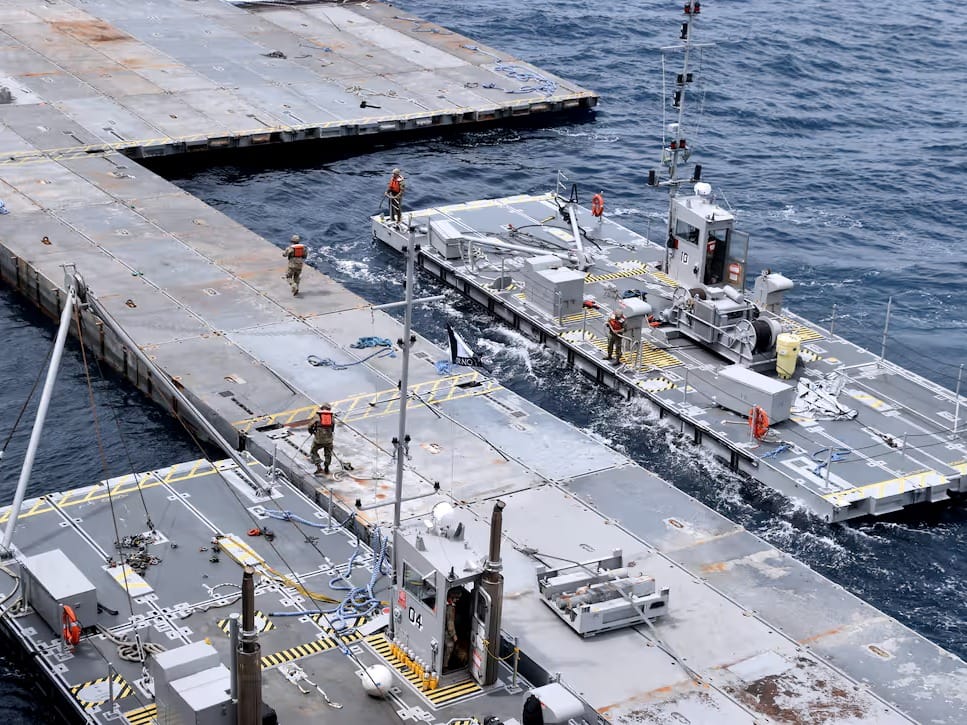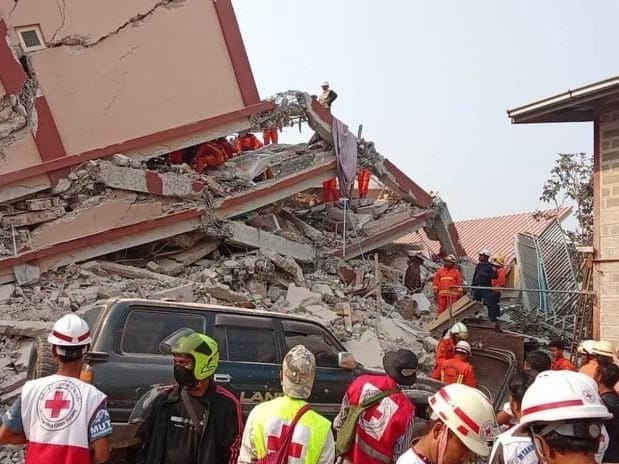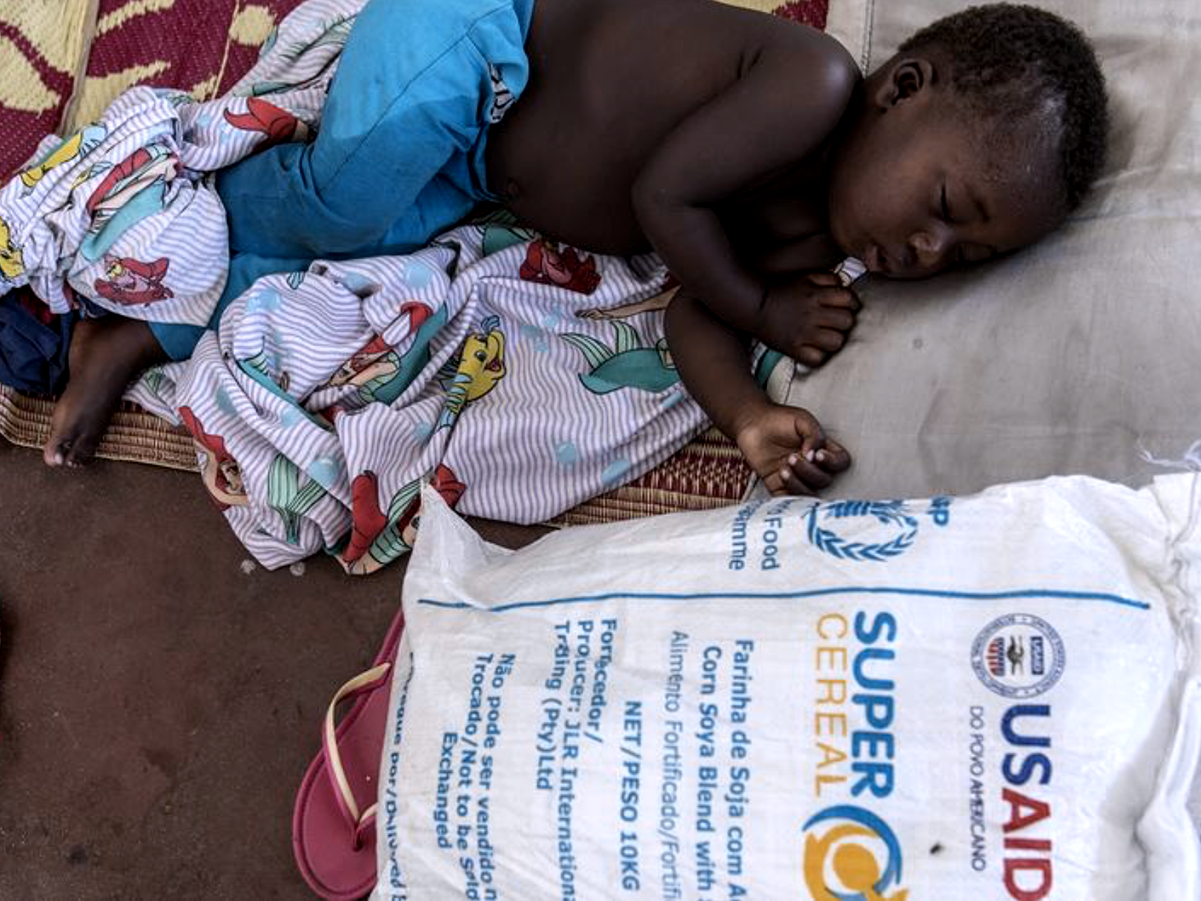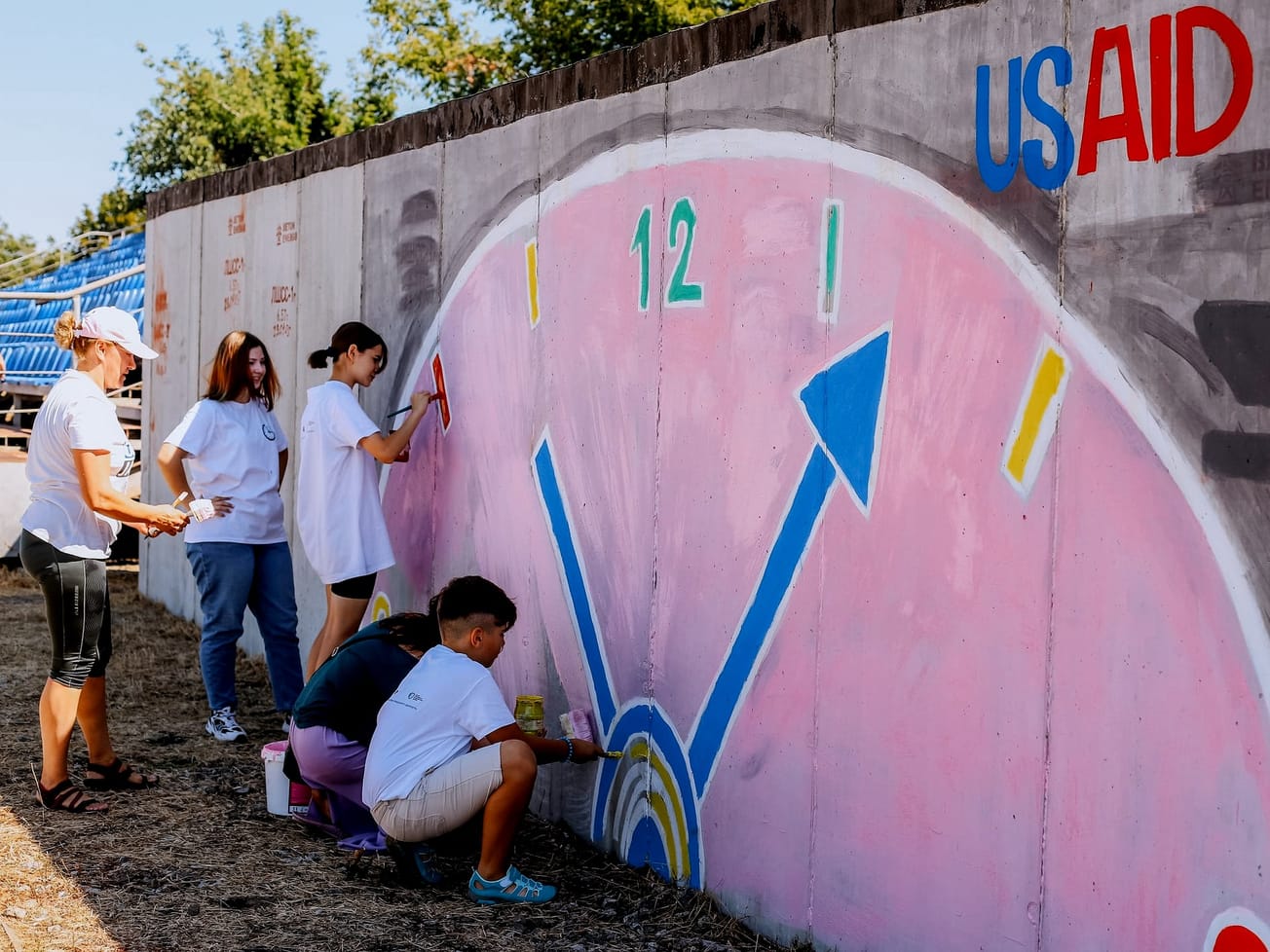A temporary pier deployed off Gaza's coast will enable aid workers to create the embattled territory's first major maritime corridor for the delivery of humanitarian aid in two decades, the U.S. military said, as a dire shortage of basic supplies pushes the enclave toward famine.
The U.S. Central Command announced on Thursday that trucks carrying aid are expected to begin moving ashore "in the coming days" through the newly established sea route. The United Nations will receive the shipments and coordinate distribution within Gaza.









